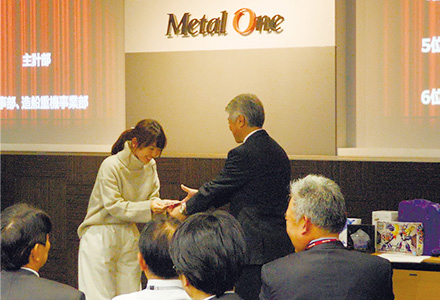Working with Robots Tomorrow's Office Space

Working with Robots Tomorrow's Office Space

RPA (Robotic Process Automation)
Robotic Process Automation, often abbreviated RPA, is an emerging technology used to simplify data entry, calculations, information gathering and other business processes. Its use is spreading rapidly due to expectations that it can improve workplace efficiency and productivity.
RPA can be used to automatically read incoming orders in varying fax formats and enter them into a company's sales management system. If any information is missing, such as a customer's address for example, the system can use the customer's name to locate that information on the Internet and add it to the order. Once the data-entry work is completed, the system will then cross-reference the information against the orginal fax, create an order form and email it to the customer.
Even when the work in question is highly systematic, automating it is not easy, and until recently the costs of doing so have been prohibative, but RPA has been a game changer.
New tools have made it possible for people with no programming experience to easily customize their own robots, and further advances in technology have broadened the space for RPA applications. More and more companies have adopted RPA systems in recent years, both here in Japan and around the world.
In 2017, Japan's RPA market was worth 3.1 billion yen, but it is expected to be worth around 10 billion yen by the year 2021. The global RPA market will be worth 5 billion US dollars (approx. 550 billion yen) by the year 2020, and by 2025, robots are expected to be doing the work of 100 million people the world over.
Expectations surrounding RPA are growing in Japan, which is faced with an aging population, declining birthrate and labor shortages. Clearly RPA can prevent human error and get us to rethink our workspaces to better suit changing work styles, but provided that improvements in efficiency make it possible for us to do so, we may be able to concentrate our human resources in more creative areas.
In the future, combining RPA with artificial intelligence (AI) may enable it to handle even more complex operations. Offices that harmoniously integrate humans and robots are full of possibilities.
RPA Robocon
Metal One Corporation (Metal One) is an integrated steel trading company and member of the Mitsubishi Corporation (MC) Group. It is proactively adopting RPA to help revolutionize its work styles. To promote the use of RPA, Metal One held an internal contest to solicit ideas from its employees, and today the company employs more than 80 robots to create itemized payment slips and handle other tasks. Together, these robots have automated about 6,000 hours of work per year. Other MC Group companies are also taking steps to raise efficiency and reform work styles through RPA.

This article appeared in Asahi Shimbun's “GLOBE” feature of July 7, 2019



